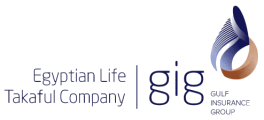Minister of Investment and International Cooperation Sahar Nasr stressed that financing for development should focus on channelling resources to eradicate poverty, in line with the overall goal of the Sustainable Development Strategy (SDS): Egypt Vision 2030. “In this context, any resources for financing development must be consistent with national priorities and development strategies of the country, while each country shall have full and permanent sovereignty over all of its resources, natural resources, and economic activity,” she added.
This came in a statement by the Group of 77 and China meeting, currently presided over by Egypt, which is being held at the United Nations Economic and Social Council in New York. The meeting was attended by Ambassador Mohamed Idris, Egypt’s permanent representative to the UN. The Group of 77 and China currently has 134 member states, representing about two-thirds of the UN’s membership, making it the largest coalition of developing states within the UN.
“As we seek to achieve the [SDS], we should pay attention to any measures that may hinder the achievement of agreed goals. In this context, we reaffirm that the imposition of economic measures against developing countries does not contribute to economic and social development. We focus our efforts on meeting the challenges of those who need them most,” she added.
The minister called on the international community to address the challenges and needs faced by developing countries, in particular landlocked African countries and small island states, as well as the challenges faced by states with conflicts, while respecting the permanent sovereignty and territorial integrity of member states.
“The world faces many challenges and risks that could hinder the achievement of the 2030 agenda, the most prominent of which are the irregular financial situation, the increase in debt, as well as the political tensions that could impede development progress. The decline in private investment in infrastructure also indicates the inability and inadequacy of investment with long-term sustainable development,” Nasr explained.
She added that official development assistance (ODA) is an essential and indispensable part of the achievement of sustainable development goals and must be in line with the national priorities and development strategies of developing countries, calling on developed countries to fulfil their ODA commitments to achieve the UN’s goal of contributing 0.7% of their national income. She also called for measures to alleviate the debt burden on developing countries by taking advantage of the Heavily Indebted Poor Countries Initiative (HIPC), debt restructuring, and sound debt management.
“The international community should strengthen cooperation to combat illegal financial flows in all their forms, given their impact on stability and economic development,” she said.
Nasr pointed to the importance of the private sector in contributing to the mobilisation of the resources necessary to support sustainable development and increase foreign direct investment.
At the UN Economic and Social Council (ECOSOC) Forum on Financing for Development, she participated at the UN Headquarters in New York at the ministerial level to share national policies and institutional developments, including improving the investment climate and facilitating long-term investment.
The minister noted the ambitious economic and social reform programme being implemented in Egypt. She also highlighted Egypt’s SDS, which is closely aligned with the goals of sustainable development.
Subsequently, Nasr participated in the high-level meeting on investment in sustainable development goals, in the presence of Mahmoud Mohieldin, first vice president of the World Bank, and Ambassador Idris.
She explained that the Egyptian government, under its goal of attracting more investments in Egypt, sought to stimulate long-term investments and that the new Investment Law included incentives for investment in areas most in need.




